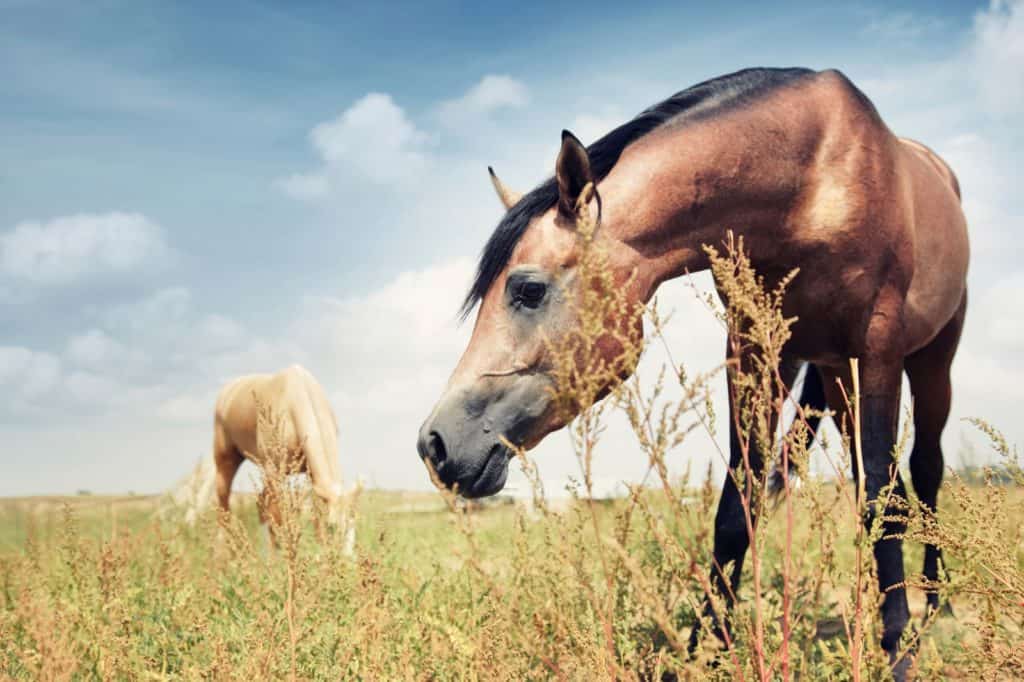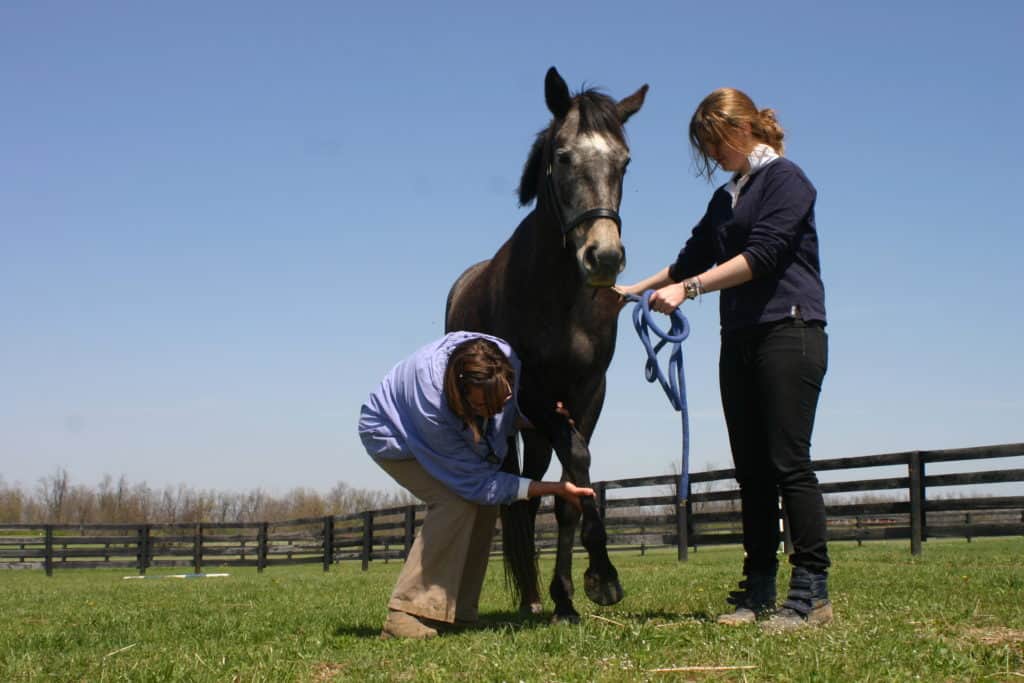
iPads for Horses? Touch-Screen Technology in Equine Research
Touch-screen computers could remove the risk of human influence in research on equine decision-making and actions.
News and issues for equine health professionals

Touch-screen computers could remove the risk of human influence in research on equine decision-making and actions.

Medication and diagnostic analgesia are only effective if veterinarians put them in the right place, so accuracy is key.

Asthmatic horses’ clinical signs worsened when temperature and humidity increased suddenly, researchers found.

Peat might not be pretty, but study results suggest it might be better for your horse’s health than wood shavings.

Improving resiliency can equip veterinarians to combat distress and burnout, and help them lead healthier lives.

Placentitis can wreak havoc for mare owners, so it’s important for vets to have a good understanding of the condition.

Learn how to alter senior horses’ diets to maximize health and longevity in the face of common health issues.

Cryopreserved epididymal sperm can be valuable if a stallion will be castrated or if he dies unexpectedly.

Reproductive tract injuries can result in the presence of blood in a stallion’s ejaculate, called hemospermia.
Lecture topics include nutrition, PPID, parasitology, back pain, toxic plants, natural foot care, and dentistry.

Giving foals hyperimmune plasma did not prevent infection, but it did reduce the severity of R. equi pneumonia.

Veterinarians share their experiences in delivering pain management and discuss the pros and cons of various drugs.

Thorough exams can help vets localize lesions to specific areas of the nervous system based on observed clinical signs.

Researchers found low detection rates in nasal secretions from horses with fever and signs of respiratory disease.

Researchers examined bone and cartilage lesions on MRI and micro-CT to better understand their distribution and type.

Recent study results suggest that shock wave can help horses return to function faster than surgery or rest alone.
Stay on top of the most recent Horse Health news with
"*" indicates required fields